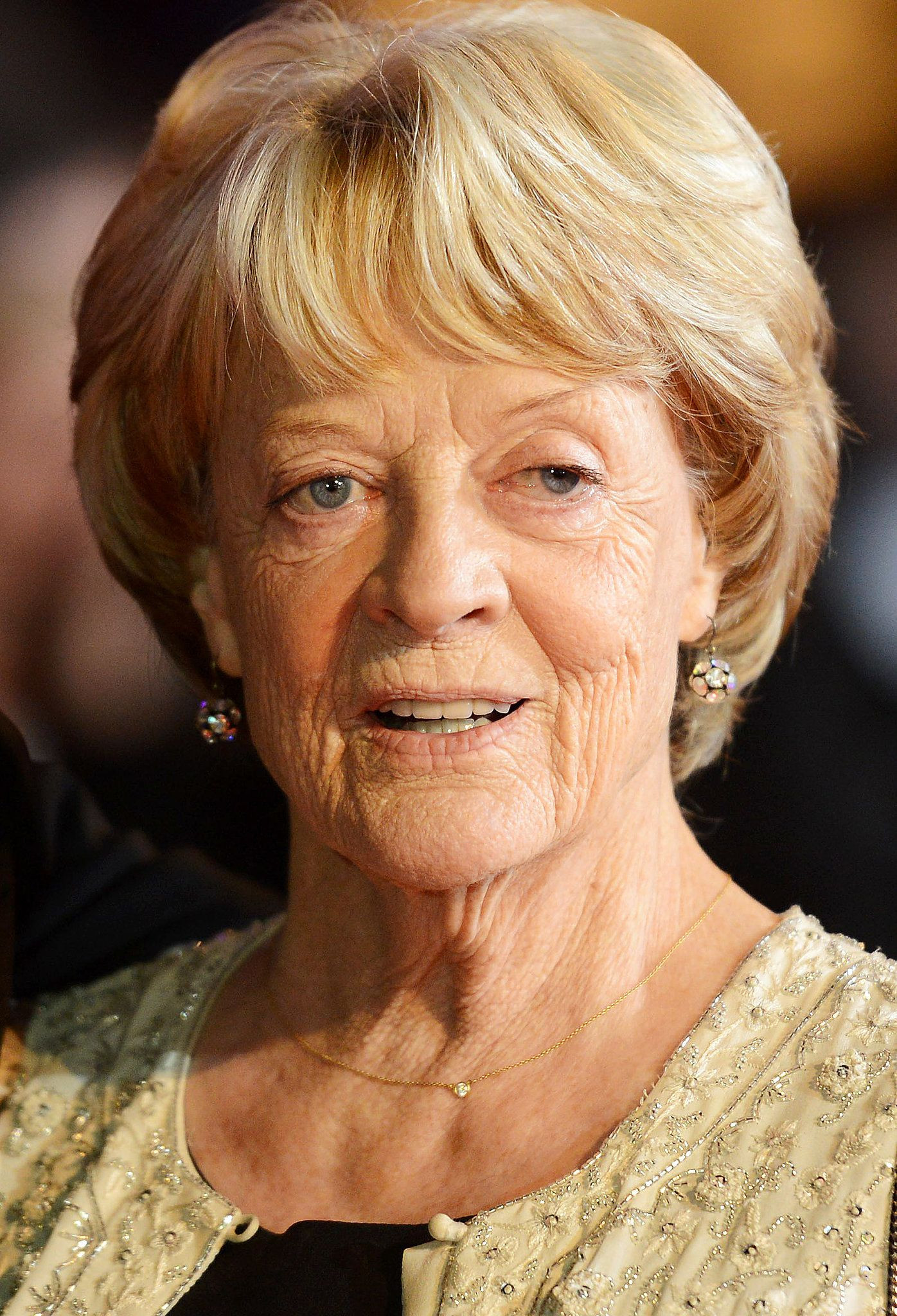Dame Maggie Smith, best known for the Harry Potter films and Downton Abbey, has been remembered as “a true legend” of stage and screen following her death at the age of 89.
Tributes have been paid by the King and prime minister, as well as numerous co-stars from her long career.
King Charles described her as “a national treasure”, while Sir Keir Starmer said she was “beloved by so many for her great talent”.
Harry Potter star Daniel Radcliffe fondly remembered her “fierce intellect” and “gloriously sharp tongue”.
Miriam Margolyes said she was “the best of the best”, who combined “ferocity, a glint of mischief, delight and tenderness”.
“And enormous courage. I’ve been in awe of her, as all her colleagues are,” Margolyes told BBC News.
“I saw what a kind person she could be - as well as absolutely terrifying.”
In the Harry Potter films, she played the acerbic Professor Minerva McGonagall, famous for her pointed witch’s hat and stern manner with the young wizards at Hogwarts.
Paying tribute, Radcliffe said: “She was a fierce intellect, had a gloriously sharp tongue, could intimidate and charm in the same instant and was, as everyone will tell you, extremely funny.
“I will always consider myself amazingly lucky to have been able to work with her, and to spend time around her on set.
“The word legend is overused but if it applies to anyone in our industry then it applies to her. Thank you Maggie.”
Emma Watson said she didn’t quite appreciate that young Hermione was sharing the screen “with a true definition of greatness” until her adult years.
Posting on Instagram, she remembered the star for being “real, honest, funny and self-honouring”.
“Maggie, there are a lot of male professors and by God you held your own.”
In hit ITV drama Downton Abbey, Dame Maggie played Violet Crawley, the Dowager Countess of Grantham, the grand matriarch who excelled at withering one-liners through the show’s six series.
Elsewhere in her career, she won two Oscars - for The Prime of Miss Jean Brodie in 1970 and California Suite in 1979.
She had four other nominations, and received seven Bafta awards.
In a statement, the King and Queen said: “As the curtain comes down on a national treasure, we join all those around the world in remembering with the fondest admiration and affection her many great performances, and her warmth and wit that shone through both off and on the stage.”
The prime minister agreed that Dame Maggie was “a true national treasure whose work will be cherished for generations to come”.
She “introduced us to new worlds with the countless stories she acted over her long career”, Sir Keir said.
Hugh Bonneville, who played the Earl of Grantham in Downton Abbey, said: “Anyone who ever shared a scene with Maggie will attest to her sharp eye, sharp wit and formidable talent.
“She was a true legend of her generation and thankfully will live on in so many magnificent screen performances.”
Dame Maggie reprised her role for the two Downton Abbey films. In 2022’s Downton Abbey: A New Era, her character died of the illness she revealed at the end of the 2019 film.
Co-star Dame Harriet Walter told BBC Radio 4’s PM programme she excelled at comedy as well as drama.
“She was a true comedian, but also I’ve seen her playing some incredibly heartfelt, deep, sad roles, which is the huge range of an actress like her,” she said.
“If she was merely funny or merely tragic, she wouldn’t quite have made that sort of impression.”
Michelle Dockery, who played Dame Maggie’s on-screen granddaughter Lady Mary Crawley, told the BBC: “There was no-one quite like Maggie.
“I feel tremendously lucky to have known such a maverick. She will be deeply missed and my thoughts are with her family.”
Lesley Nicol, who played Downton Abbey’s cook Mrs Patmore, told BBC Radio Ulster: “It’s a very close group of people so we’re all devastated to think she’s not around any more.”
Downton Abbey creator and writer Julian Fellowes told Variety magazine she was “a joy to write for, subtle, many-layered, intelligent, funny and heart-breaking”.
Downton followed the success of 2002 period drama Gosford Park, which earned Dame Maggie both Oscar and Bafta nominations for playing the Dowager Countess of Trentham.
Dame Kristin Scott-Thomas, who starred alongside Dame Maggie in Gosford Park, said she “took acting very seriously but saw through the nonsense and razzmatazz”.
“She really didn’t want to deal with that,” Dame Kristin added.
“She had a sense of humour and wit that could reduce me to a blithering puddle of giggles. And she did not have patience with fools. So you had to be a bit careful. I absolutely adored her.
“The last time I saw her, she was very cross about being old. ‘Maddening’ I think she said. Much loved, much admired and irreplaceable.”
Speaking to BBC Radio 4’s Today programme, actor Simon Callow said Dame Maggie was a “great comedienne” who “showed unbelievably brilliant psychological insight into her characters”.
Callow, who starred alongside Dame Maggie in the 1985 romance A Room with a View, said: “To work with somebody like that is a sort of miracle.”
Also paying tribute, a National Theatre spokesperson said her career “spanned the theatrical, film and television world without equal”.
Praising her stage performances, the statement continued: “She will forever be remembered as one of the greatest actors this country has had the inestimable pleasure of witnessing.”
Bafta added that she was a “legend of British stage and screen”.
Announcing the news of her death “with great sadness” on Friday, her sons Toby Stephens and Chris Larkin said she “passed away peacefully in hospital early this morning”.
They said: “An intensely private person, she was with friends and family at the end. She leaves two sons and five loving grandchildren who are devastated by the loss of their extraordinary mother and grandmother.”
They thanked “the wonderful staff at the Chelsea and Westminster Hospital for their care and unstinting kindness during her final days”.
They added: “We thank you for all your kind messages and support and ask that you respect our privacy at this time.”
Dame Maggie began her career in the 1950s and was nominated for her first Oscar for playing Desdemona opposite Laurence Olivier in Shakespeare’s Othello in 1965.
The actress’s other memorable roles included 1985 Merchant Ivory film A Room With a View, which earned her another Oscar nomination and a Bafta.
She appeared as an English woman living in 1930s Italy in the film Tea with Mussolini, which was released in 1999; and was the firm but fair Reverend Mother in the two Sister Act films.
Sister Act co-star Whoopi Goldberg called Dame Maggie “a great woman and a brilliant actress”, adding: “I still can’t believe I was lucky enough to work with the ‘one-of-a-kind’.”
Rob Lowe, who starred with Dame Maggie in 1993’s Suddenly, Last Summer, recalled “the unforgettable experience of working with her”.
“Sharing a two-shot was like being paired with a lion,” he said.
“She could eat anyone alive, and often did. But funny, and great company. And suffered no fools.
“We will never see another. God speed, Ms Smith!”
The veteran actress also played the old woman who spent 15 years living in a van outside Alan Bennett’s house in theatre and film adaptations of the writer’s The Lady in the Van.
Alex Jennings, who played Bennett in the big screen version, told Radio 4 she was “fearless” and praised her “brilliant technical abilities as an actress”.
Maggie Smith's Legacy: A Career Defined by Versatility
Dame Maggie Smith’s career was a testament to her versatility as an actress. She seamlessly transitioned between comedic and dramatic roles, leaving an indelible mark on stage and screen. Her talent was undeniable, and her performances were often described as captivating and unforgettable.
From her early days on the stage to her iconic roles in films like “The Prime of Miss Jean Brodie” and “A Room With a View,” Smith consistently demonstrated her ability to portray characters with depth and nuance. Her sharp wit and comedic timing were equally matched by her dramatic prowess, as evidenced in her powerful performances in “Hedda Gabler” and “The Lonely Passion of Judith Hearne.”
A True National Treasure
Dame Maggie Smith’s passing marks the end of an era. She was a true national treasure, a legend whose work will continue to inspire generations of artists. Her talent, her charisma, and her unyielding spirit will be missed, but her legacy will live on through her unforgettable performances and the profound impact she had on the world of entertainment.

















